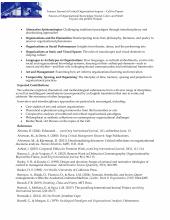Steven Best
|
David M. Boje
|
Alexander Styhre
|
Steve Jaros
|
Stephen Jaros
Wyświetleń3153 Pobrań1318
|
Aleksander Chrostowski; Monika Kostera
|
David M. Boje
|
Robin Matthews
|
David M. Boje
Wyświetleń2373 Pobrań1065
|
Karin Berglund; Caroline Wigren
|
Laura Elizabeth Pinto
|
Agata Dembek
Wyświetleń3130 Pobrań1152
|





